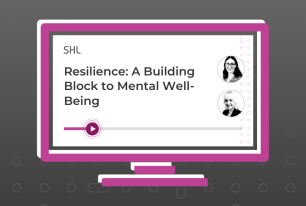How to Change a Toxic Work Culture by Caring for Carers
Behind every individual at work, there is a father, mother, friend, son, or daughter to someone. Learn how we can all change a toxic work culture by starting with caring for these carers.
Share
“Self-care is not a waste of time; self-care makes your use of time more sustainable.” – Jackie Viramontez
Former First Lady of the United States, Rosalyn Carter, famously said, “there are only four types of people in the world: those who have been caregivers, who are caregivers, who will be caregivers, and who will need caregivers.” So many of us are caregivers, whether we are caring for our children, helping aging parents, caring for an ill, injured, or disabled spouse, or providing care for a friend, family, or neighbor in need. Providing meals, running errands, or giving the gift of time when they are in need, are all ways we are caregivers.
Caregiving is a very rewarding activity that can bring joy and a feeling of fulfillment, but it is also hard and can come at a great cost to the caregiver’s own wellbeing. This is something that leaders and people in many workplaces seem to forget. How many times do we hear people working overtime to meet an impossible deadline, bosses yelling at their staff for a small mistake, and many other examples of a toxic work culture that lead to a high employee turnover rate?
Toxic culture in the workplace is the #1 reason why people leave
The lack of empathy and understanding is the recipe for leadership failure that leads to toxic work culture. Too often leaders fail to remember that they are also caregivers, who need to care for their people by providing them with what they need to achieve their aspirations, or when they are not feeling well to prevent burnout. And even if you are not in a managerial position, you also have the power to care for others. We know that toxic work cultures are driving the Great Resignation, so we all need to work together to change the toxic culture in the workplace and replace it with an empathetic one.
Last month, the UK celebrated Carer’s Week, and this year, the theme is “Making caring visible, valued, and supported.” I feel that this is a great reminder to all of us that behind every single hardworking employee who always tries hard to meet clients’, bosses’, and colleagues’ demands at work, there is a human and caregiver.
The lack of empathy and understanding is the recipe for leadership failure that leads to toxic work culture.
What can everyone do to change a toxic work culture?
- Do not hesitate to get help when you need it—no matter what others say
Caregivers many times must balance their jobs, caregiving, other family, friends, and other obligations and then neglect to take care of themselves. Take advantage of the EAP line or Mental Health First Aiders if you need some help, talk to your manager if you need some additional support or are feeling overwhelmed. It is much easier to manage early than when things have progressed. - Practice gratitude
Take a moment to thank the carers in your life—the people who help when needed, those who care for your children or pets when you travel or work, those who look after your parents when you are not around, and so on. A note or a token of appreciation can make a huge difference in what can often be a stressful and thankless job. If you are a caregiver, thank you for all you do. - Prioritize self-care
Remember to carve out some time for yourself. Treat yourself to a dinner of your favorite foods, find some time to read a book or watch a movie of your choice, or even just find some time to go to bed early this week. Take care of yourself, remember you cannot help someone else if you do not take care of yourself either. - Be kind and empathetic to others
Kindness and empathy are really the keys to transforming a toxic work culture into a positive one. Just like you, other people would not like it if their work encroaches on their private lives all the time or if they do not feel safe sharing their voices. Establish a sense of security within your work environment by being authentic, understanding, and empathetic. Set clear boundaries and respect each other’s time.
Now is the time for everyone to work hand in hand to change a toxic culture in the workplace. We are all caregivers, whether it is at work or at home, and we need to remember that each of us has the power to transform a toxic work culture into a positive work culture.
Check out our resources for more tips for building a healthy and happy organization!









